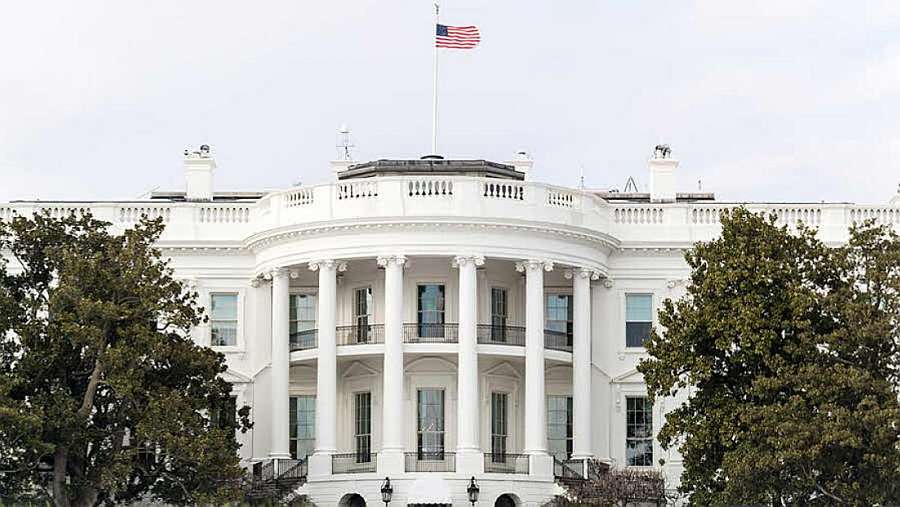U.S. Launches ‘DFI’ Global Internet Defense Effort
Said 50-plus countries sign on to declaration of openness, security and interoperability

The smarter way to stay on top of broadcasting and cable industry. Sign up below
You are now subscribed
Your newsletter sign-up was successful
The United States has joined with more than 55 other nations to issue a Declaration for the Future of the Internet (DFI), a statement of principles in defense of the internet against threats from Russia, China and other authoritarian regimes and in support of an “open, free, global, interoperable, reliable, and secure Internet for the world,” or essentially net neutrality principles writ large.
The declaration's presentation evokes another U.S. declaration of principles of almost 250 years ago, but that one was about independence not interdependence.
The principles are in support of “an internet that fosters the protection and promotion of basic human rights online; and an internet that advances these goals across relevant economic policies and regulatory activities.”
The DFI, said the White House, is about democratic governments — and “like-minded partners“ including from civil society, industry, and academics — attempting to “reverse” what they said is the current trajectory of the internet.
The Biden administration defines that trend as “rising digital authoritarianism, where some states have been acting to repress freedom of expression, to censor independent news sources, to interfere with elections, promote disinformation around the world, and deny their citizens other human rights.”
And while the White House called out Russia and China by name, they said they were hardly alone in following that “dangerous new model.”
The administration said the U.S. was launching the DFI effort, but that it was a joint operation and will complement and “fortify” existing internet freedom efforts.
“[We are united by a belief in the potential of digital technologies to promote connectivity, democracy, peace, the rule of law, sustainable development and the enjoyment of human rights and fundamental freedoms,” the DFI states in its preamble. “As we increasingly work, communicate, connect, engage, learn, and enjoy leisure time using digital technologies, our reliance on an open, free, global, interoperable, reliable, and secure Internet will continue to grow. Yet we are also aware of the risks inherent in that reliance and the challenges we face.
“We call for a new Declaration for the Future of the Internet that includes all partners who actively support a future for the internet that is open, free, global, interoperable, reliable, and secure,“ the declaration continues. “We further affirm our commitment to protecting and respecting human rights online and across the digital ecosystem. Partners in this Declaration intend to work toward an environment that reinforces our democratic systems and promotes active participation of every citizen in democratic processes, secures and protects individuals’ privacy, maintains secure and reliable connectivity, resists efforts to splinter the global Internet, and promotes a free and competitive global economy.“
Jason Oxman, president the Information Technology Industry Council (ITI), offered reasons behind his industry group‘s backing of the declaration.
“ITI supports the Declaration on the Future of the Internet’s call to action to work with global partners who actively support an internet that is open, interoperable, reliable, and secure,“ Oxman said. ”Many governments are advancing a range of policies that restrict the movement of information, goods, and services under the guise of data protection, data sovereignty, cybersecurity, government access to data, or industrial policy.
“The tech industry supports the cosignatories’ shared vision of promoting open, non-discriminatory policies based on rigorous and objective criteria, recognizes existing efforts on internet freedom taking place with allies globally, and appreciates the United States' leadership in driving the Declaration forward,” he added.
The smarter way to stay on top of broadcasting and cable industry. Sign up below
"As we carry out President Biden’s ambitious goal to connect every single American to high-speed internet, this declaration reaffirms our commitment to advancing a positive vision for the internet and digital technologies, while ensuring that all people are able to reap these benefits,” Commerce Secretary Gina Raimondo said.
Commerce’s National Telecommunications & Information Administration is overseeing more than $40 billion in broadband infrastructure subsidies and has said that quality and price, as well as openness and equal access, are part of the definition of broadband availability.
According to Commerce, those signing on to the DFI in addition to the U.S. are Albania, Andorra, Argentina, Australia, Austria, Belgium, Bulgaria, Cabo Verde, Canada, Colombia, Costa Rica, Croatia, Cyprus, Czech Republic, Denmark, Dominican Republic, Estonia, the European Commission, Finland, France, Georgia, Germany, Greece, Hungary, Iceland, Ireland, Israel, Italy, Jamaica, Japan, Kenya, Kosovo, Latvia, Lithuania, Luxembourg, Maldives, Malta, Marshall Islands, Micronesia, Moldova, Montenegro, Netherlands, New Zealand, Niger, North Macedonia, Palau, Peru, Poland, Portugal, Romania, Senegal, Serbia, Slovakia, Slovenia, Spain, Sweden, Taiwan, Trinidad and Tobago, the United Kingdom, Ukraine and Uruguay. ■
Contributing editor John Eggerton has been an editor and/or writer on media regulation, legislation and policy for over four decades, including covering the FCC, FTC, Congress, the major media trade associations, and the federal courts. In addition to Multichannel News and Broadcasting + Cable, his work has appeared in Radio World, TV Technology, TV Fax, This Week in Consumer Electronics, Variety and the Encyclopedia Britannica.

